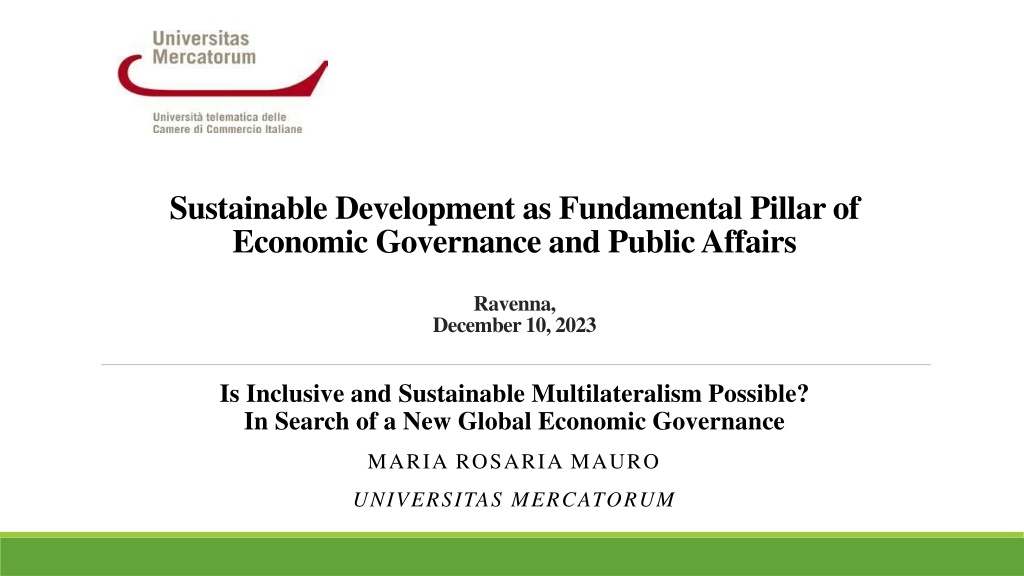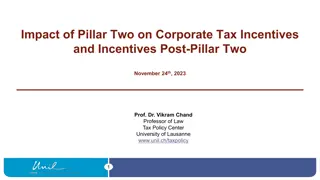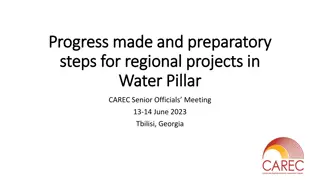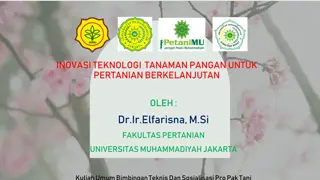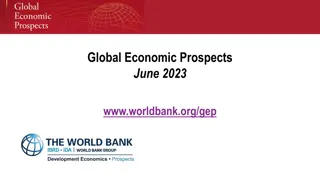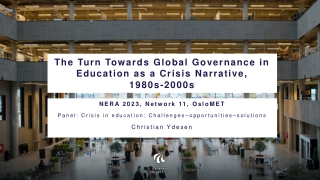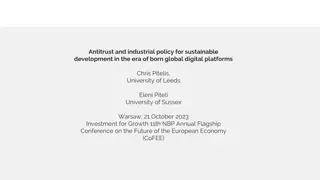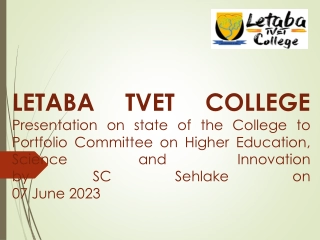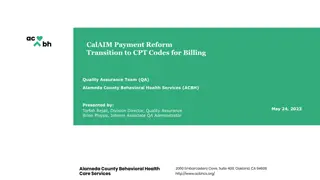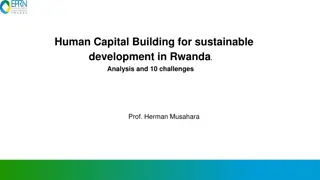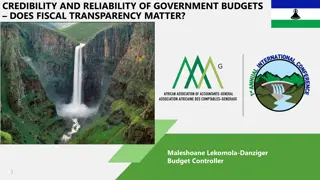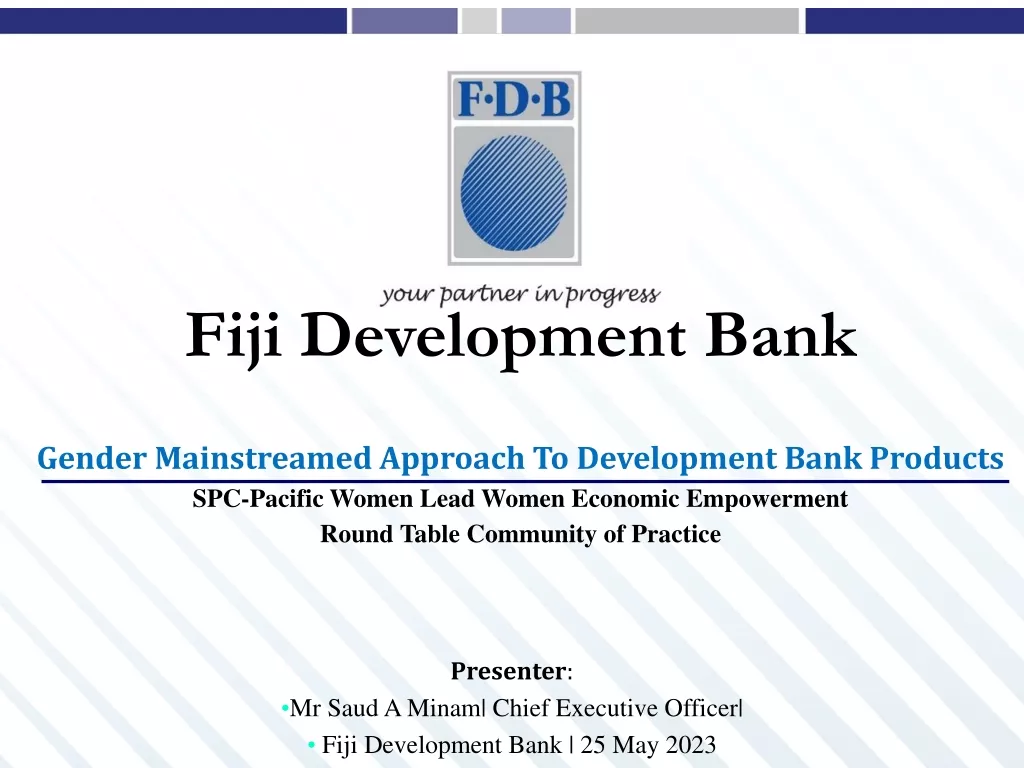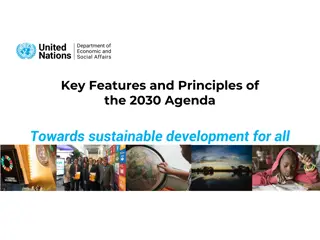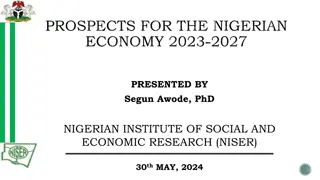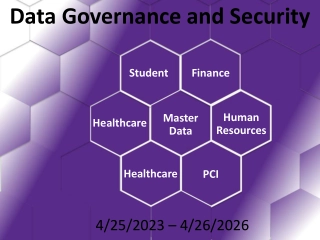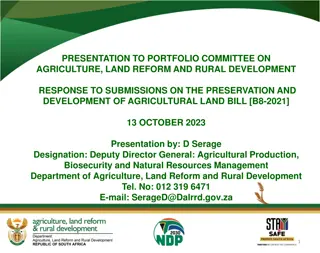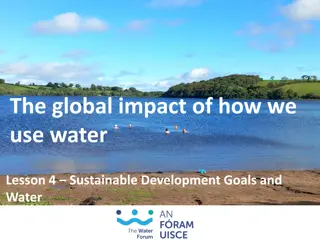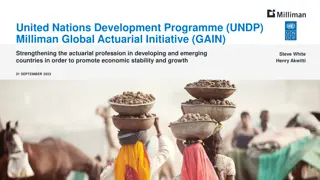Sustainable Development as Fundamental Pillar of Global Economic Governance Reform
The need for reform in global economic governance is emphasized for achieving sustainable and shared growth. Key issues include debt burden reduction, sustainable finance increase, and international trade system improvement. International commitments on human rights and sustainable development are not fully implemented by economic organizations, such as IMF and WTO. Guidelines for reform stress promoting sustainable development and protecting human rights. Achieving inclusive and sustainable multilateralism remains a challenge.
Download Presentation
Please find below an Image/Link to download the presentation.
The content on the website is provided AS IS for your information and personal use only. It may not be sold, licensed, or shared on other websites without obtaining consent from the author. Download presentation by click this link. If you encounter any issues during the download, it is possible that the publisher has removed the file from their server.
Presentation Transcript
Sustainable Development as Fundamental Pillar of Economic Governance and Public Affairs Ravenna, December10, 2023 Is Inclusive and Sustainable Multilateralism Possible? In Search of a New Global Economic Governance MARIA ROSARIA MAURO UNIVERSITAS MERCATORUM
The international community is far from achieving the objectives that should be accomplished by 2030. The Need for a Global Economic Governance Reform More incisive transformations of national social and economic systems are needed, as well as a reform of the international "institutional" system and of global economic governance that could favor such transformations. In this context, the reform of economic multilateral organizations takes place.
The Key Issues for a Reform The reform of the global economic governance must occur in light of the objective of a sustainable and shared growth. The key issues: the reduction of the debt burden, accompanied by the introduction of new mechanisms and principles regarding debt restructuring; the increase of sustainable finance; the improvement of the international trade system. Declaration adopted on occasion of the Summit on the Sustainable Development Goals (18 and 19 September 2023): improving the international debt mechanisms, providing support for eligible vulnerable countries and strengthening the coordination among creditors; to support a reform of the international financial architecture in order to promote investments for the achievement of SDGs and to face global challenges; to urge multilateral development banks to mobilize and provide additional financing to support developing countries to achieve the SDGs; to promote a universal, rules -based, non-discriminatory, open, fair, inclusive, equitable and transparent multilateral trading system, with the WTO at its core, which could contribute to the achievement of the SDGs.
IMF and WB have begun to opt for principles and tools dedicated to the research of greater sustainability, however, this only happened very gradually and with delay. The Modest Level of Implementation of International Commitments on Human Rights and Sustainable Development by Economic International Organisations There are still no global universal institutions that guarantee the restructuring of foreign sovereign debt in accordance with the need to promote human rights and sustainable development The WTO negotiations have essentially focused on trade liberalization, without giving due consideration to the SDGs or aspects such as decent work, food security, and a balanced use of natural resources
Guidelines for the Reform of Economic International Organizations The promotion of sustainable development and the protection of human rights as inspiring criteria for the reform of economic international organizations. The promotion of sustainable development and the protection of human rights as guiding principles of the activities of economic international organizations. A global decision-making process with a broader vision. To measure development on the basis of sustainability, equity and human rights. To enhance accountability mechanisms. To definitively abandon the so-called Political Neutrality .
Concluding Remarks The multilateral system, especially if reformed, will continue to be the uniquely inclusive vehicle for promoting national and global welfare. The integrated nature of the SDGs requires a global response and a renewed commitment to multilateralism.
Thanks for yourattention! MARIA ROSARIA MAURO UNIVERSITAS MERCATORUM MARIAROSARIA.MAURO@UNIMERCATORUM.IT
